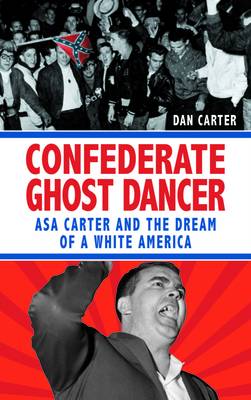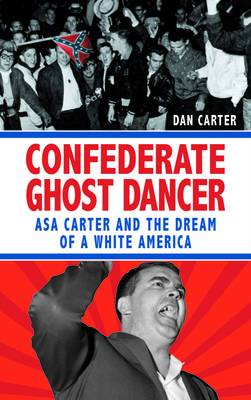
- Retrait gratuit dans votre magasin Club
- 7.000.000 titres dans notre catalogue
- Payer en toute sécurité
- Toujours un magasin près de chez vous
- Retrait gratuit dans votre magasin Club
- 7.000.0000 titres dans notre catalogue
- Payer en toute sécurité
- Toujours un magasin près de chez vous
Description
Unmasking the Klansman may read like a work of fiction but is actually a biography of Asa Carter, one of the South's most notorious white supremacists (and secret Klansman). During the 1950s, the North Alabama political firebrand became known across the region for his right-wing radio broadcasts and leadership in the white Citizens' Council movement. Combining racism and thinly-concealed anti-Semitism, he created a secret Klan strike force that engaged in a series of brutal assaults, including an attack on jazz singer Nat King Cole as well as militant civil rights activists. Exploring his life during these years offers new insights into the legal maneuvers as well as the violence used by white Southern segregationists to derail the civil rights movement in the region.
In the early 1960s Carter became a secret adviser to George Wallace and wrote the Alabama governor's infamous 1963 inauguration speech vowing "segregation now, segregation tomorrow, segregation forever." When Carter disappeared from Alabama in 1972, few knew that he had assumed a new identity in Abilene, Texas, masquerading as a Cherokee American novelist. Using the name "Forrest" Carter, he published three successful Western novels, including The Rebel Outlaw: Josey Wales, which Clint Eastwood made into a widely acclaimed 1976 movie. His last book, The Education of Little Tree (a fake biography of his supposed Indian childhood) posthumously became a number one best-seller in 1991. Author Dan T. Carter uncovered "Forrest" Carter's true identity while researching his biography of Georgia Wallace and in a New York Times' op-ed he exposed Carter's deception. Although the difficulties of uncovering the full story of the secretive Carter initially led him to abandon the project, in 2018 he gained access to more than two hundred interviews by the late Anniston newsman, Fred Burger. These recordings and his two decades of exhaustive research finally brought Asa Carter's story into focus. Unmasking the Klansman is the result.Spécifications
Parties prenantes
- Auteur(s) :
- Editeur:
Contenu
- Nombre de pages :
- 400
- Langue:
- Anglais
Caractéristiques
- EAN:
- 9781588384812
- Date de parution :
- 15-04-23
- Format:
- Livre relié
- Format numérique:
- Genaaid
- Dimensions :
- 148 mm x 228 mm
- Poids :
- 793 g

Les avis
Nous publions uniquement les avis qui respectent les conditions requises. Consultez nos conditions pour les avis.






